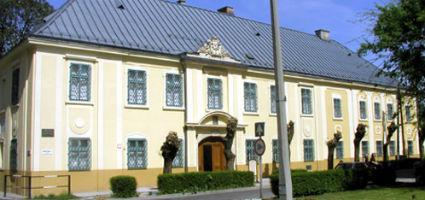2024. November 21. Thursday
Archibishop - Kalocsa
 |
Address: 6300, Kalocsa Hunyadi János u. 2.
Phone number: (78) 462-166 /210, (30) 575-0702
E-mail: kincstar@asztrik.hu
Opening hours: 01.04-31.10.: Tue-Sun 9-17
Also at other times on prior notice. |
Museum tickets, service costs:
|
Ticket for adults
|
600 HUF
|
|
|
Ticket for students
|
300 HUF
|
|
|
Ticket for pensioners
|
300 HUF
|
Péter Prokop was born in Kalocsa in 1918; he was consecrated into priesthood 1942. He performed his task for three years after which he enrolled the Fine Art Academy. He was asked to return to his original profession by his archbishop in 1948 after the schools were nationalized and he could not finish his last semester at the Academy. He moved to Rome in 1957. He graduated as a painter from the Fine Art Academy of Rome where he became a complete artist. In 1999 he moved back to Hungary and lived and worked in Csepel until his death in 2003.
His active life can be represented by his works and independent exhibitions in Germany, USA, and Australia as well. His paintings, painted glasses, altar pictures, graphics, and books are abundant. His works were taken to Hungary from 1978, his biggest independent exhibition was held in the St, Stephen Pilgrimage House (around 470 pictures). He donated most of his works to museums, institutions to show them at permanent exhibitions. In Kalocsa an exhibition is open of his works since 1988.
Péter Prokop believed that he was an expressive artist who was in search of the vision of the soul, which he exaggerated in his art. His humanistic message was about the complete man, as mush and as widely represented as possible. He tried everything that the material allowed. His variability was surprising, though his versatility is still holding together.
His active life can be represented by his works and independent exhibitions in Germany, USA, and Australia as well. His paintings, painted glasses, altar pictures, graphics, and books are abundant. His works were taken to Hungary from 1978, his biggest independent exhibition was held in the St, Stephen Pilgrimage House (around 470 pictures). He donated most of his works to museums, institutions to show them at permanent exhibitions. In Kalocsa an exhibition is open of his works since 1988.
Péter Prokop believed that he was an expressive artist who was in search of the vision of the soul, which he exaggerated in his art. His humanistic message was about the complete man, as mush and as widely represented as possible. He tried everything that the material allowed. His variability was surprising, though his versatility is still holding together.